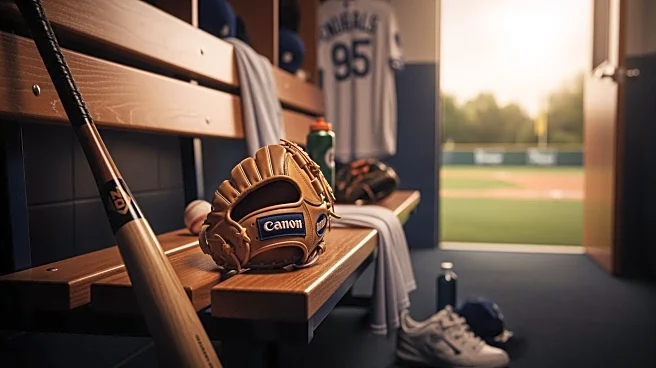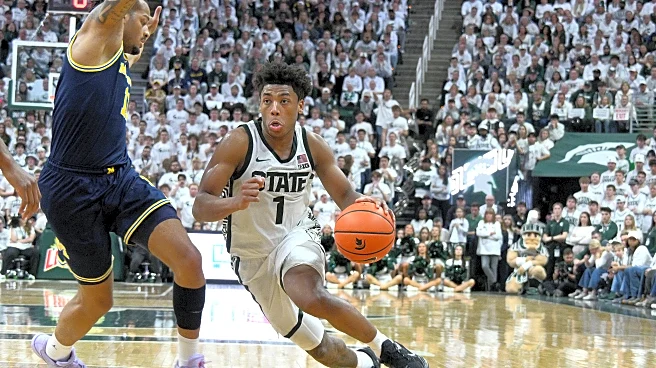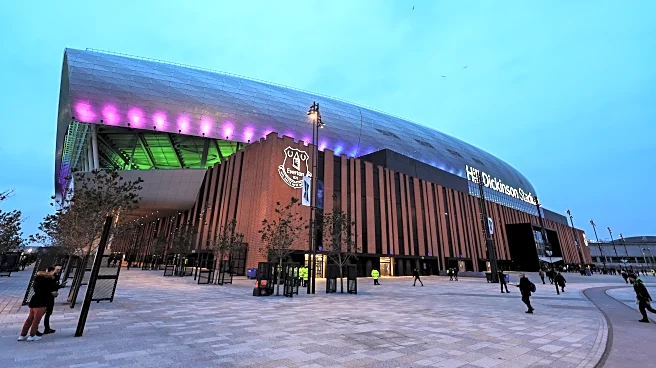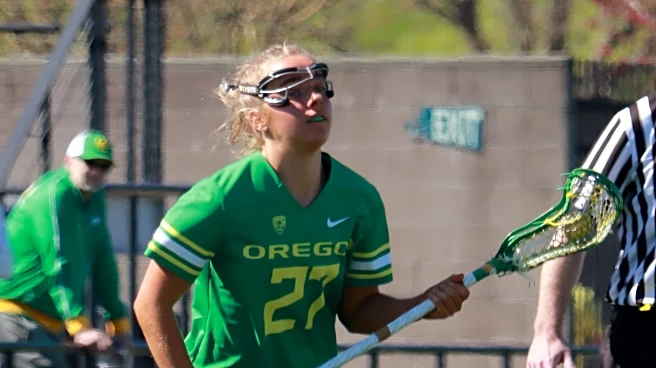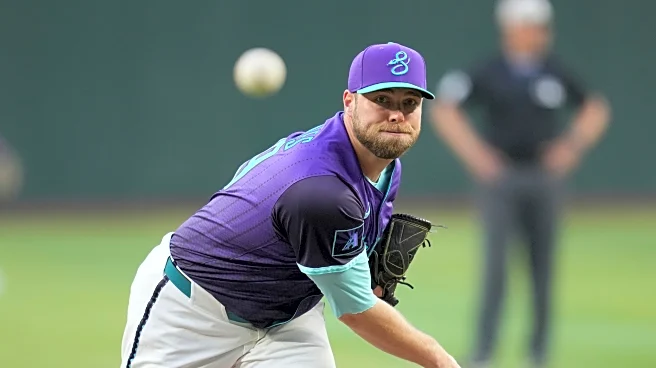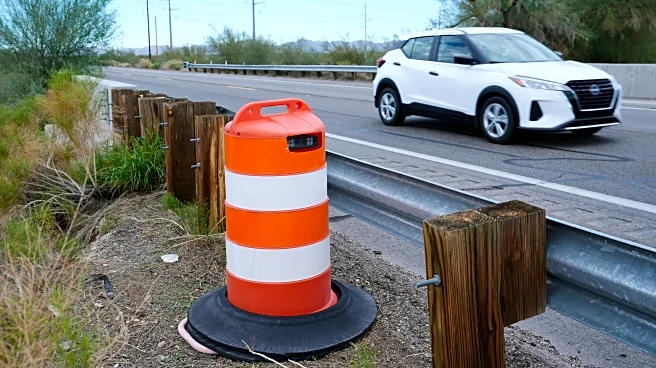What's Happening?
David Shields, a promising young pitcher in the Kansas City Royals' system, has made significant strides in his first professional season. At just 18 years old, Shields skipped his final year of high school
to pursue a career in baseball, and his decision appears to be paying off. He was named the Royals' Paul Splittorff Pitcher of the Year and the Carolina League Pitcher of the Year, showcasing his talent and maturity beyond his years. Shields posted a 2.38 ERA across 19 starts, with a notable performance in the Carolina League South Division Series, where he struck out eight batters in five innings. His development has been marked by improvements in his pitching arsenal, including a refined changeup and the introduction of a slider.
Why It's Important?
Shields' rapid progress is significant for the Royals as they look to bolster their pitching lineup with young talent. His success at such a young age suggests a bright future, potentially accelerating his path to the major leagues. For the Royals, nurturing homegrown talent like Shields is crucial for long-term competitiveness, especially in a league where pitching depth is vital. Shields' achievements also highlight the importance of player development systems in baseball, as they can transform promising prospects into key contributors for their teams.
What's Next?
Shields aims to continue refining his skills during the offseason, focusing on improving his slider and overall pitch consistency. The Royals will likely monitor his progress closely, with the potential for him to advance through the minor league ranks quickly. As he continues to develop, Shields could become a pivotal part of the Royals' future pitching staff, contributing to their success in upcoming seasons.
Beyond the Headlines
Shields' story underscores the challenges and opportunities faced by young athletes who choose to pursue professional sports careers early. His decision to skip his final year of high school reflects a growing trend among talented young athletes who prioritize professional development over traditional educational paths. This raises questions about the balance between education and sports, and the long-term implications for those who choose this route.
